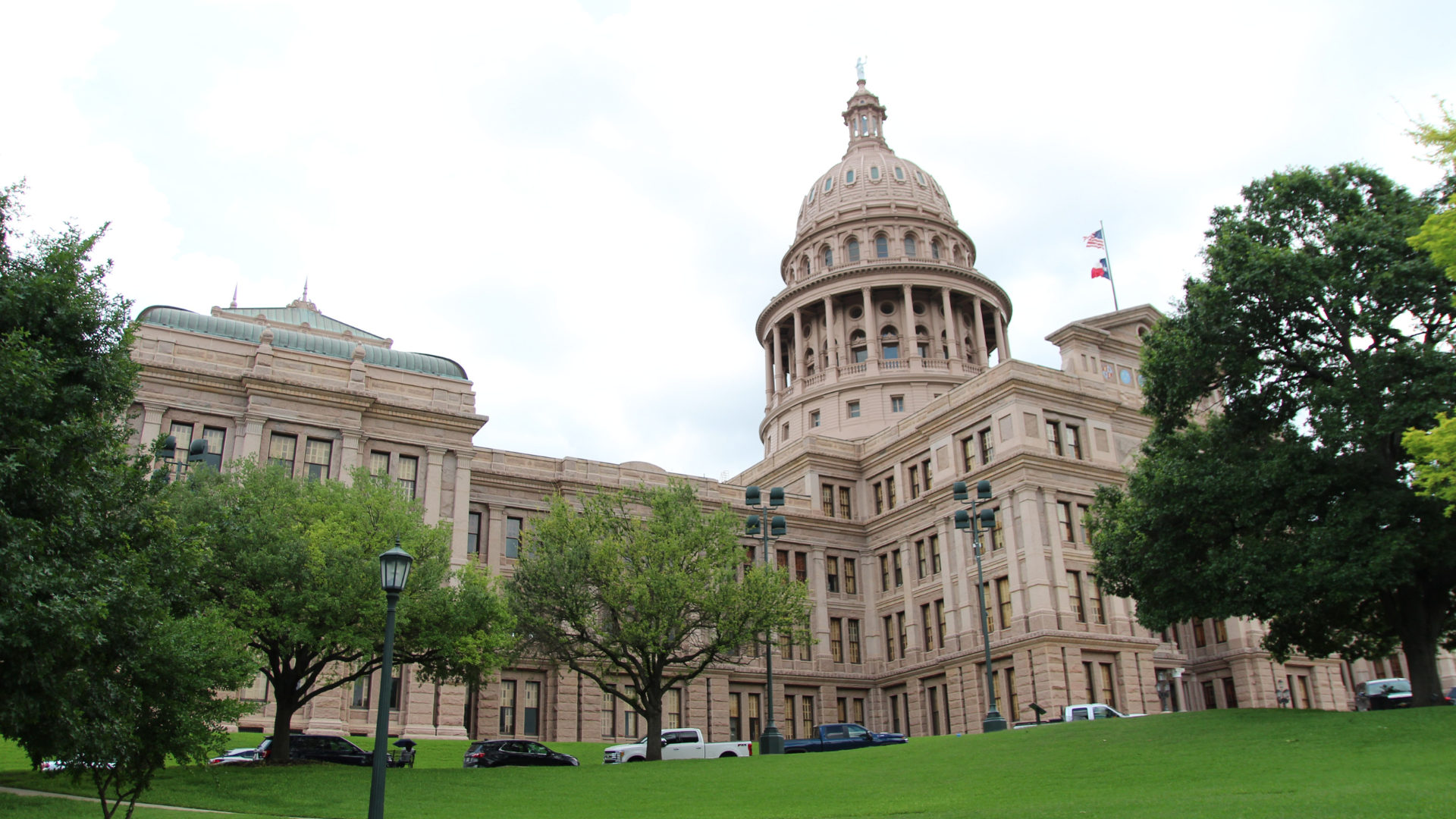By Elise DeYoung
This past month, I had the opportunity to speak to a Kentucky mom about her homeschool experience and the state regulations that Kentucky has in place for homeschoolers. I shared how Classical Conversations has strong feelings regarding state involvement in homeschooling. We believe that the state has no place in our classrooms and actively work to bar state intervention and influence. She asked me how much state regulation is too much, specifically in my state of Michigan. What a timely question!
Any State Regulation is Too Much Regulation
I explained to her that the position of CC is that any state regulation is too much regulation.
Recently, in Michigan, there has been a move to enforce homeschool registration, requiring homeschooling parents to inform their local government schools of their intention to homeschool. This Kentucky mom stopped me short and said, “Oh! We have that in Kentucky. Don’t worry about it. I only have to fill out a form saying I am homeschooling and turn it in to our local school. It really isn’t bad at all.”
Many Michigan residents and homeschool parents share this opinion. What is the harm in filling out a simple form?
Before concluding whether a homeschool registration is “really bad,” we must first understand what Michigan lawmakers are proposing and why.
In December of last year, Dana Nessel, the Attorney General of Michigan, proposed on X[1]
“implementing monitoring mechanisms” onto homeschooling to “ensure that all children, including those homeschooled, receive necessary protections [from abuse].” This demand comes after two families, the Flore family, and the Brown family, were allegedly found to have abused their children while homeschooling them. Nessel charged these parents with thirty-six child abuse crimes and with a conspiracy to commit these crimes [2].
In support of this announcement, House Education Chair and Representative Matt Koleszar wrote on X[3]
“Michigan is one of only 11 states that doesn’t count or register homeschooled children, and abusive parents are taking advantage of that to avoid being found out. It’s time to support all Michigan students and change that. Michigan cannot allow this loophole to continue.”
Their position is clear: Due to the alleged abuse of some homeschooled children, Michigan should enforce a homeschool registration bill – which would inform the state of who is homeschooling and where they are – so that it can protect the children within homeschooled families from abuse. Or, as Koleszar says so innocently in an interview on CBS[4], “We just want to know where they [the children] are.”
This argument seems very convincing at first. If signing a form saying we are homeschooling will save children from abuse, shouldn’t we just do it?
It is tempting to say yes; however, Michigan residents must oppose the homeschool registration proposal because:
- the narrative is dishonest
- state oversight does not protect children from abuse
- state regulations always increase over time
The Narrative is Dishonest
It is important that we put the claim of Nessel and Koleszar – that abuse in some homeschool families justifies state oversight – into a statistical perspective.
Researchers have conducted many studies to address the question, “Do homeschoolers experience higher rates of abuse than public schoolers?” Each study has come to the same conclusion.
“Homeschooled children are abused at a lower rate than are those in the general public, and no evidence shows that the home educated are at any higher risk of abuse” (Ray, 2018)
On the contrary, A Gen 2 Survey found that homeschooled students are 257% less likely to be sexually abused than their public-schooled peers.
This begs the questions:
- What is homeschooling doing right?
- What is public school doing wrong?
- Additionally, if there is more abuse in the public school system, shouldn’t our representatives focus their efforts there rather than seeking to regulate homeschoolers?
State Oversight Does Not Protect Children from Abuse
The main problem Koleszar has with Michigan’s current “lack of oversight” into homeschooling is that the state government does not know where a vast number of homeschooled children are. “They have simply fallen through the cracks,” said Koleszar on CBS. Because of this, the Representative says that the state has no idea whether these children are being educated, cared for, or, God forbid, abused by their parents. The solution offered is to put these children on a government database.
This solution assumes that government oversight prevents the abuse of children, and we must address this assumption.
This is not the case.
For instance, consider the previous statistics that prove that there is more abuse in government schools than there is in homeschools. Students who attend public schools sit under the watchful eye of the government day in and day out. The state knows where they are.
Additionally, Michigan requires that teachers are all trained to spot signs of abuse and are required to report any suspected victims and abusers to the state.[5]. Do all these government regulations, requirements, and oversight result in lower abuse rates? The statistics prove that they do not.
But let’s set public schools aside for a moment and focus specifically on abuse in homeschools. Would state regulation decrease the abuse found here? Once more, the answer is no.
Nessel uses two families, the Flore and Brown families, as examples to prove why Michigan needs to register homeschooled children to the state to stop them from being abused.
Both examples fall apart when you learn that the children who were allegedly abused by their parents were adopted and foster care children. This is extremely significant because children in the adoption agency and the foster care system are already well known by the government – they know where they are.
Israel Wayne makes this point during an interview with CBS, saying,
“The two families that attorney Dana Nessel is using as examples are families who adopted children out of the foster care system, and legally, you can’t homeschool children who are in the foster care system, so this is not a fair illustration. But these children were deeply known by the Department of Child Services. Actually one of the fathers in that situation was actually a CPS investigator by occupation… they were already on a government database, and so if they were truly child abusers (that has yet to be proven), they [the children] weren’t protected simply because their name was on a government database.”
In the exact examples cited by Nessel and Koleszar we can clearly see that being on a government database did not protect these children from the alleged abuse by their parents. What makes us think the results will be any different if implemented at a much larger scale?
The issue of the abuse of children being undetected is a Child Protective Services (CPS) issue, not a homeschool issue.
Wayne concluded his interview by stating that a homeschool registration “is not actually going to do what is being claimed. This will not protect children.”
Regulation Always Increases
During his interview, Koleszar was asked an insightful question by the CBS host, “Well, I imagine a lot of parents would say “Surely, they are going to want to do more than just knowing where the children are,” I mean, receiving a letter that says this child is homeschooled, how would you make that jump from understanding if they are in a safe situation to understanding if they are being educated. Surely there would have to be some kind of home visits, some kind of interaction, right?”
He responded by saying, “It’s fair to say that, but I think right now the main thing we need to do is know where – we have a lot of children who have fallen through the cracks, and we just want to know where they are.”
This answer is extremely telling. Koleszar refuses to admit the probability of increased oversight in the future while recognizing it as a “fair thing to say.”
We have already seen how children being on a government database will not stop them from being abused. So, if Koleszar is really concerned with minimizing the abuse of homeschoolers, he will have to instill more and more regulations to have the chance to attain his goal.
Registrations will turn into home visits, which will turn into state tests, which end in a state-regulated curriculum. We have seen this progression in other states, like New York and Massachusetts, that now have extremely high homeschool regulations. HSLDA has researched homeschool regulations by state.
The only result that will come of this proposal by Nessel and Koleszar is an eventual increase in government control and oversight of homeschooling without the promised results of reducing the abuse of children.
The Solution
“The present study’s findings, along with prior limited research, indicates at least three things for policymakers and others to consider. First, there is no empirical evidence that homeschool students are at any higher risk of abuse than public school and private school students; some evidence indicates that the home educated might be at lower risk. Second, there is no empirical evidence that state control (regulation) of homeschooling does anything to reduce the potential for abuse of homeschool children. Finally, there is no credible empirical evidence that increasing any current levels of regulation of homeschooling would reduce the potential for abuse of homeschool students.” (Ray, 2018)
Michigan residents must oppose the homeschool registration proposal because
- the narrative is dishonest
- state oversight does not protect children from abuse
- state regulations always increase over time
Instead of unnecessarily and ineffectively regulating homeschoolers, the state should enforce the laws and make use of the child protective services that Michigan already has in place to help protect children from abuse in all places.
“Our view is that we don’t want to see abuse protected, we want to see every child protected. But we believe the best way to do that is to prosecute known child abusers with existing laws that we already have on the books. And so, we believe that child protective services and state agencies need to use laws that we already have rather than creating needless bureaucracy that won’t actually protect children.”
– Israel Wayne

Elise DeYoung is a Public Relations and Communications Associate and a Classical Conversations graduate. With CC, she strives to know God and make Him known in all aspects of her life. She is a servant of Christ, an avid reader, and a professional nap-taker. As she continues her journey towards the Celestial City, she is determined to gain wisdom and understanding wherever it can be found. Soli Deo gloria!
Resources and Further Reading
For more information on this issue, you can listen to Israel Wayne. If you are interested in learning how you can help promote homeschool freedoms in your state, visit Classical Conversation’s Homeschool Freedom Action Center, Israel Wayne’s website, and Family Renewal.
[1] Nessel, Dana. X, 6 Dec. 2023, twitter.com/dananessel/status/1732395669824880823. Accessed 8 Jan. 2024.
[2] Nessel, Dana. “Attorney General Dana Nessel Charges 4 Adoptive Parents with 36 Child Abuse Crimes, Conspiracy.” Michigan Department of Attorney General, 4 Dec. 2023, www.michigan.gov/ag/news/press-releases/2023/12/04/attorney-general-dana-nessel-charges-4-adoptive-parents-with-36-child-abuse-crimes-conspiracy. Accessed 15 Jan. 2024.
[3] Koleszar, Matt. X, 5 Dec. 2023, twitter.com/koleszar_matt/status/1732025556818968823. Accessed 8 Jan. 2024.
[4] “Breaking Down Homeschooling, Childcare in Michigan.” CBS News, uploaded by CBS Detroit, 6 Dec. 2023, www.cbsnews.com/detroit/video/breaking-down-homeschooling-child-care-in-michigan/.
[5] Laws and Model Policies That Guide School Health Service Programs in Michigan. 2nd ed., Michigan Association of School Nurses, 2013. p. 7. Accessed at https://www.michigan.gov/-/media/Project/Websites/mde/2021/10/18/ADA_Laws_and_Model_Policies_July_2021_final.pdf
















